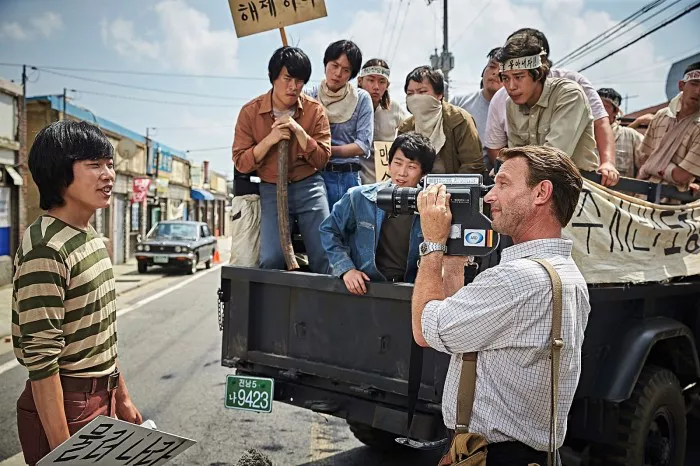Korean cinema has produced a diverse range of films that explore political themes and address socio-political issues. These films often provide insightful commentary on Korean society, history, and politics, reflecting the country’s complex political landscape. Here are some notable Korean movies that are based on politics:
1. “The Attorney” (변호인):
Directed by Yang Woo-suk, “The Attorney” is based on the real-life story of South Korean human rights lawyer Roh Moo-hyun, who later became the President of South Korea. The film follows the journey of a small-town lawyer who takes on a high-profile case involving students arrested for protesting against the government’s authoritarian regime in the 1980s. “The Attorney” explores themes of justice, democracy, and human rights in the context of South Korea’s tumultuous political history.
2. “1987: When the Day Comes” (1987):
Directed by Jang Joon-hwan, “1987: When the Day Comes” is a political thriller inspired by the events leading up to the June Democratic Uprising in South Korea in 1987. The film depicts the death of a student activist while in police custody, which sparks a nationwide movement for democracy and accountability. “1987: When the Day Comes” examines the role of government corruption, media censorship, and public activism in shaping the political landscape of South Korea.
3. “The President’s Last Bang” (그때 그사람들):
Directed by Im Sang-soo, “The President’s Last Bang” is a dark comedy-drama that revisits the events surrounding the assassination of South Korean President Park Chung-hee in 1979. The film offers a satirical portrayal of the political elite and military leaders involved in the coup d’état and subsequent power struggle. “The President’s Last Bang” is known for its bold and controversial depiction of historical events and its critique of authoritarianism in South Korea.
4. “The Man Standing Next” (남산의 부장들):
Directed by Woo Min-ho, “The Man Standing Next” is a political thriller based on the true story of the assassination of South Korean President Park Chung-hee in 1979. The film explores the complex relationships and power dynamics within the Korean Central Intelligence Agency (KCIA) and the government leading up to the assassination. “The Man Standing Next” delves into themes of political intrigue, betrayal, and the pursuit of power in a tense and volatile political environment.
5. “The Spy Gone North” (공작):
Directed by Yoon Jong-bin, “The Spy Gone North” is a spy thriller based on the true story of a South Korean intelligence officer who infiltrated North Korea in the 1990s. The film follows the undercover mission of the officer, who poses as a businessman seeking to invest in North Korea’s nuclear program. “The Spy Gone North” explores the complexities of inter-Korean relations, espionage, and diplomatic maneuvering in the context of the Cold War era.
6. “The Attorney General” (변호인):
Directed by Woo Min-ho, “The Attorney General” is a political drama inspired by the life of South Korean politician Roh Moo-hyun, who served as the President of South Korea from 2003 to 2008. The film chronicles the rise of a former human rights lawyer who becomes the nation’s top prosecutor and confronts corruption and injustice within the political establishment. “The Attorney General” offers a nuanced portrayal of the challenges and moral dilemmas faced by those in positions of power.
7. “The Front Line” (고지전):
Directed by Jang Hoon, “The Front Line” is a war drama set during the Korean War and based on the Battle of Aerok Hill, one of the bloodiest battles of the conflict. The film follows the experiences of soldiers on both sides of the frontline as they confront the harsh realities of war and grapple with questions of loyalty, patriotism, and sacrifice. “The Front Line” explores the human cost of war and the political complexities of the Korean War.
Conclusion:
Korean cinema has produced a rich and diverse array of films that delve into political themes and address socio-political issues. Whether exploring historical events, government corruption, or inter-Korean relations, these films offer insightful commentary on Korean society and politics. Through compelling storytelling, nuanced characters, and thought-provoking narratives, Korean movies based on politics provide audiences with a deeper understanding of the complexities and challenges of the political landscape in South Korea.
Related Topics:
What Chinese TV shows should you watch to learn Chinese?
China’s Drama Industry – What is the best drama?
Why are Korean TV series so popular?

